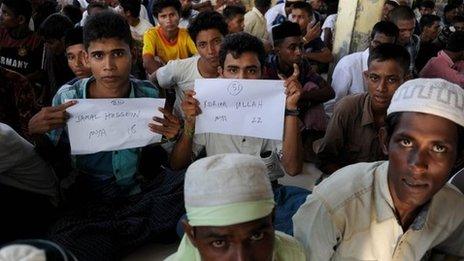Rakhine: Myanmar's restive state
- Published
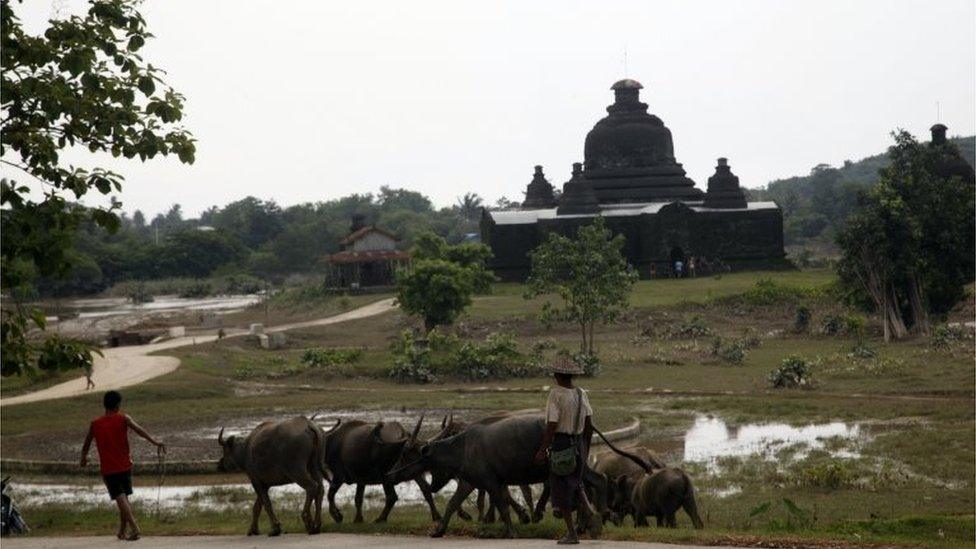
The Rohingya in Rakhine have been barred from voted or registering as candidates in the upcoming election
Rakhine state on the western coast of Burma has seen long-running tension between the majority Buddhists and minority Muslims.
In 2012 those tensions erupted into deadly communal violence, and since then there have been sporadic clashes.
The state was again in the spotlight earlier this year when thousands of Rohingya were found stranded on boats in the Andaman Sea trying to leave Rakhine for Malaysia.
As Myanmar looks towards landmark national elections in November, the rising Buddhist nationalism in Rakhine has made it one of the more politically unpredictable regions.
Discrimination and marginalisation
The problems in Rakhine state stem from decades of armed violence, extreme poverty and underdevelopment.
Like other minorities, the Rakhine ethnic group face economic marginalisation and discrimination by the state.
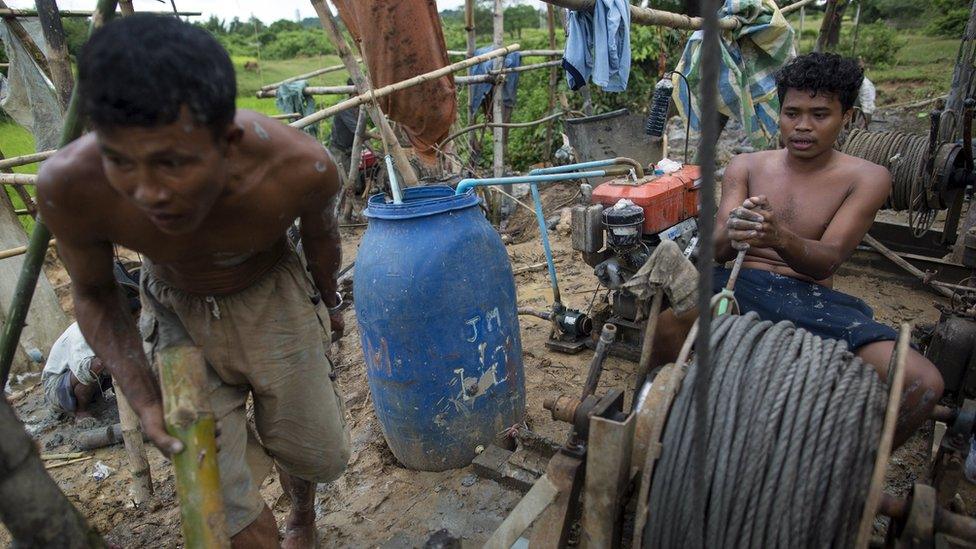
Rakhine has suffered from underdevelopment and ethnic unrest
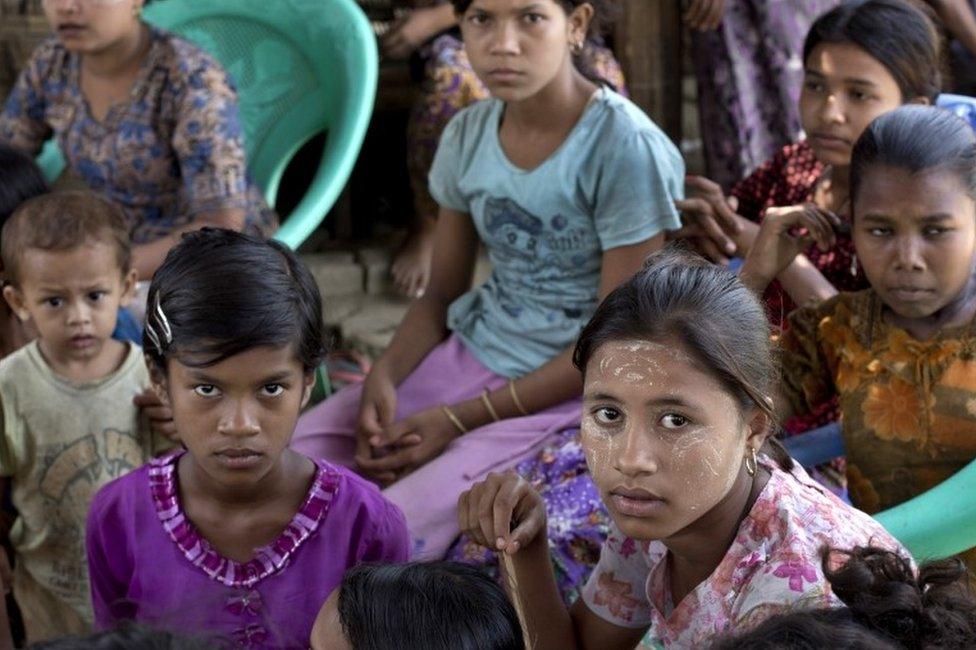
Many Rohingya now live in camps without access to basic neccesities
The Rohingya, meanwhile - who make up a third of the population of Rakhine state - are denied full citizenship.
In Myanmar, they are widely referred to as Bengali - they are considered migrants from Bangladesh, though they have been in Myanmar for generations.
The United Nations describes them as a "persecuted religious and linguistic minority".
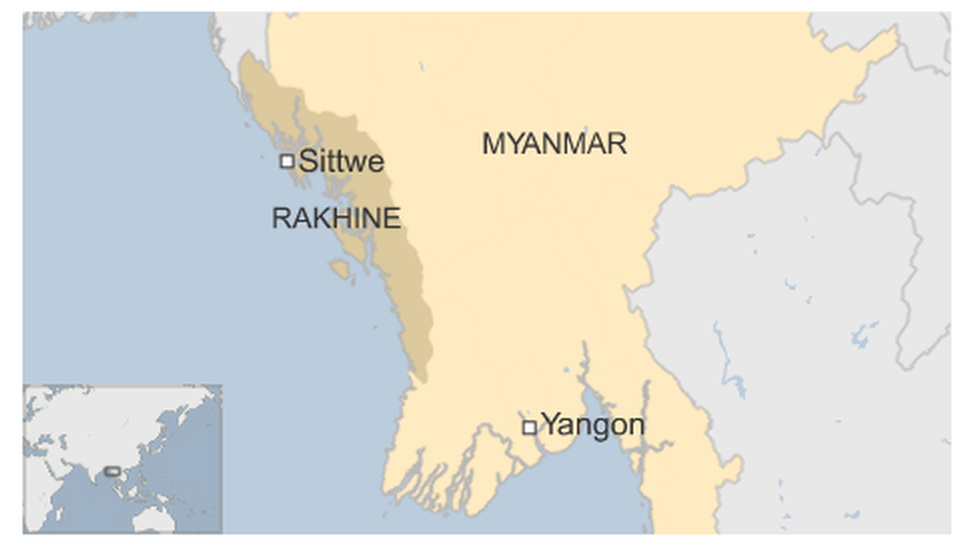
Tensions spilled over into inter-communal violence in 2012 around the state capital, Sittwe, sparked by the rape and murder of a Buddhist woman.
More than 200 people died and about 140,000 people - mainly Rohingya - were made homeless.
Many now live in camps with no or limited access to food, healthcare or education. Some Rohingya have turned to people smugglers to get them to Malaysia.
Jonah Fisher reports from Rakhine state in Myanmar where he has been following the plight of Rohingya migrants
After Thailand and Malaysia increased scrutiny of areas where people smugglers operate in 2015, thousands of Rohingya were abandoned at sea by the traffickers.
This brought global attention to the Myanmar government's treatment of the Rohingya.
Buddhist nationalism
Earlier this year, the Rohingya were stripped of their right to vote or register as candidates for the elections.
The Arakan National Part (ANP), a party of ethnic Rakhine Buddhists which was formed last year, lobbied hard for that change.
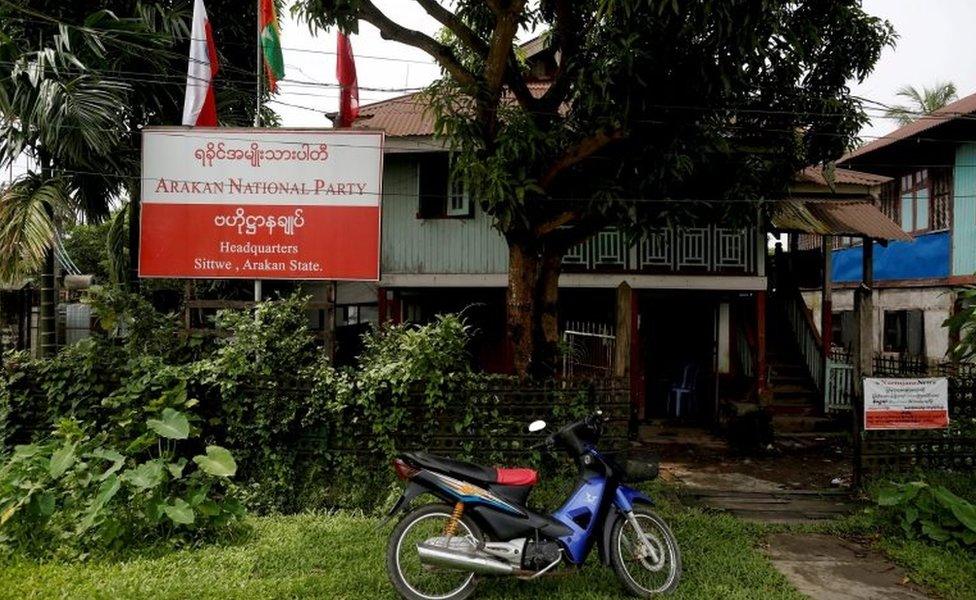
The Arakan National Party is made up ethnic Rakhine Buddhists
Analysts say both national parties, the ruling Union Solidarity and Development Party (USDP) and the opposition National League for Democracy (NLD) face an uphill battle in the elections against the ANP in most of the state constituencies.
The NLD is viewed as sympathetic to the Rohingya - even though its leader Aung San Suu Kyi has steered clear of speaking out about the treatment of Rohingya.
- Published2 June 2015
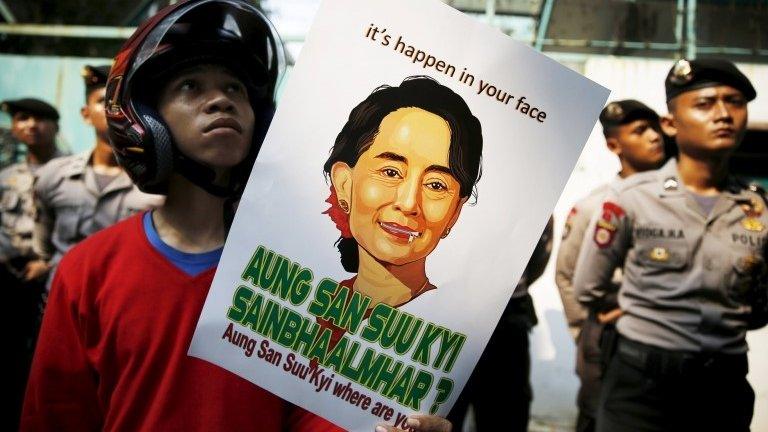
- Published3 July 2014
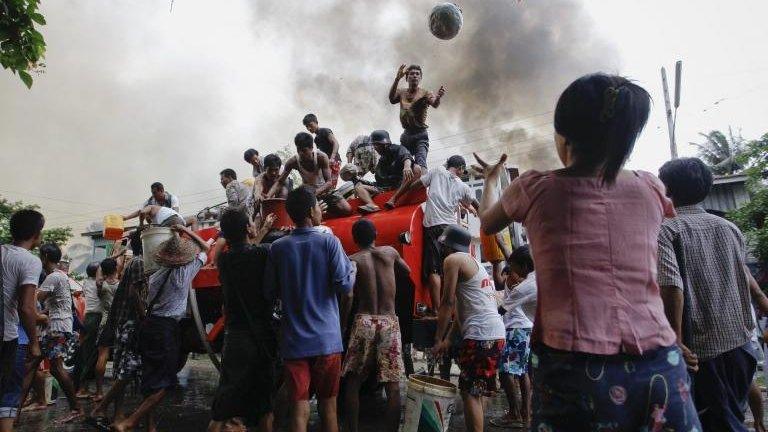
- Published18 May 2015
